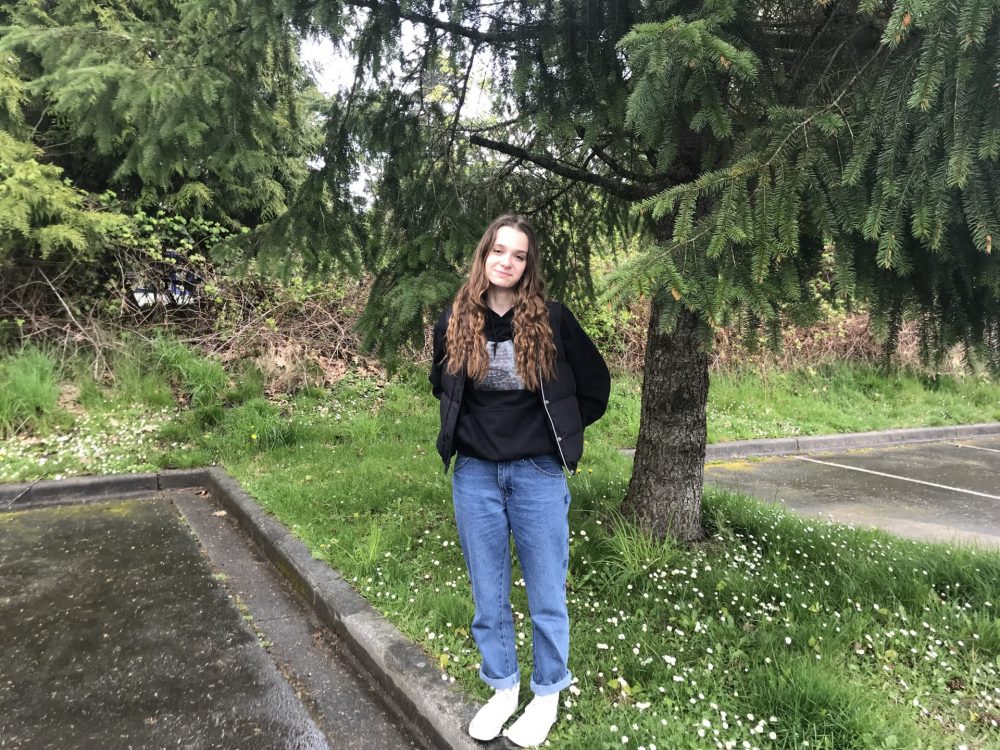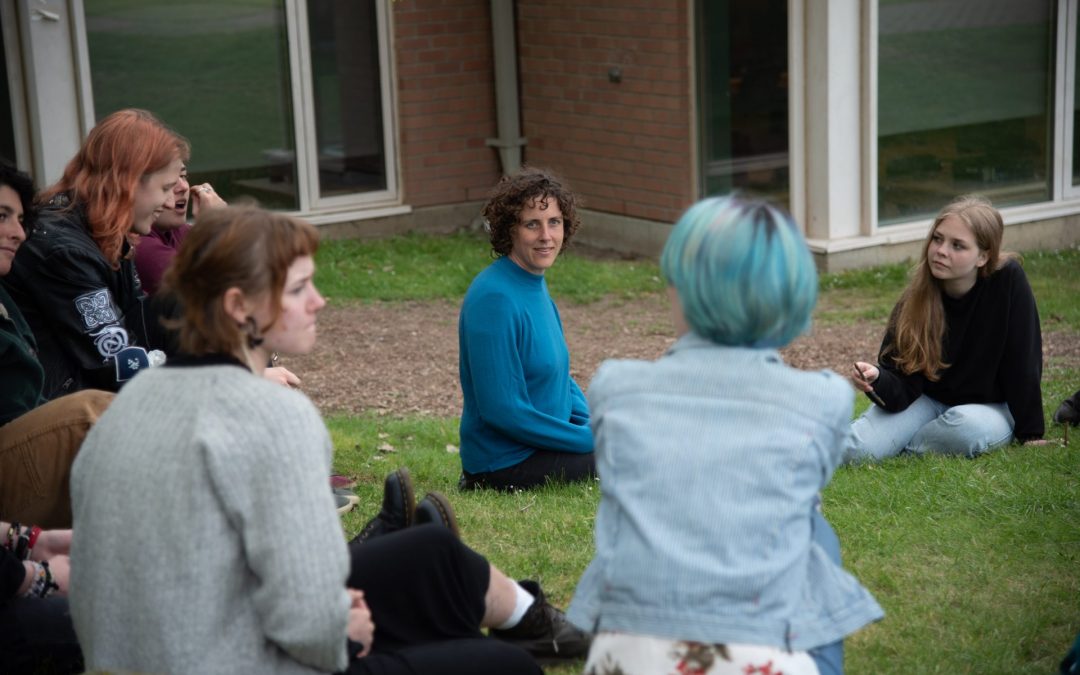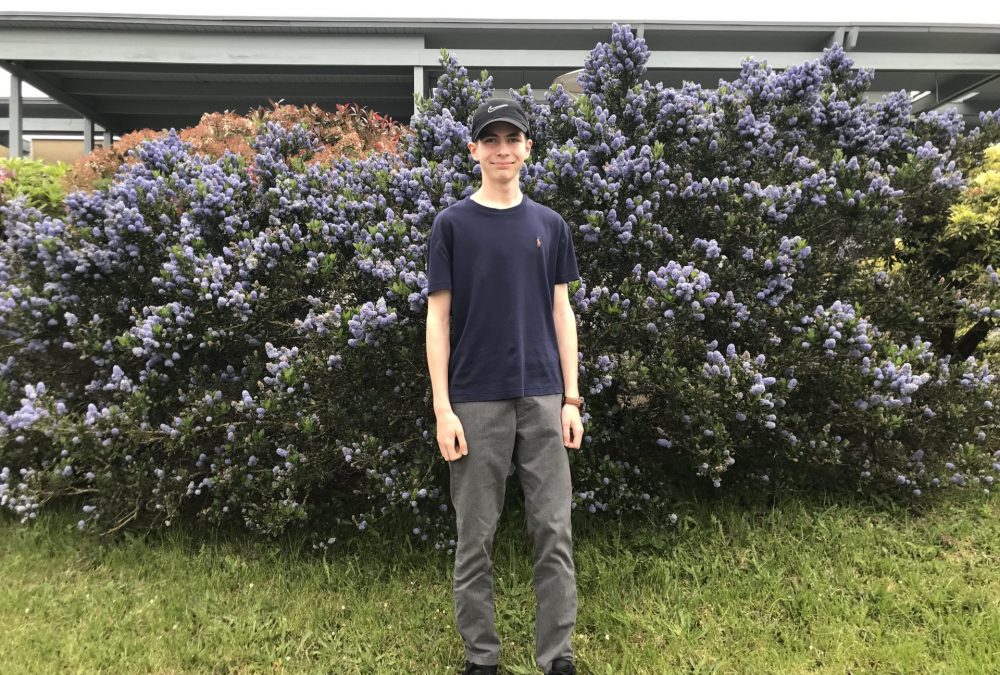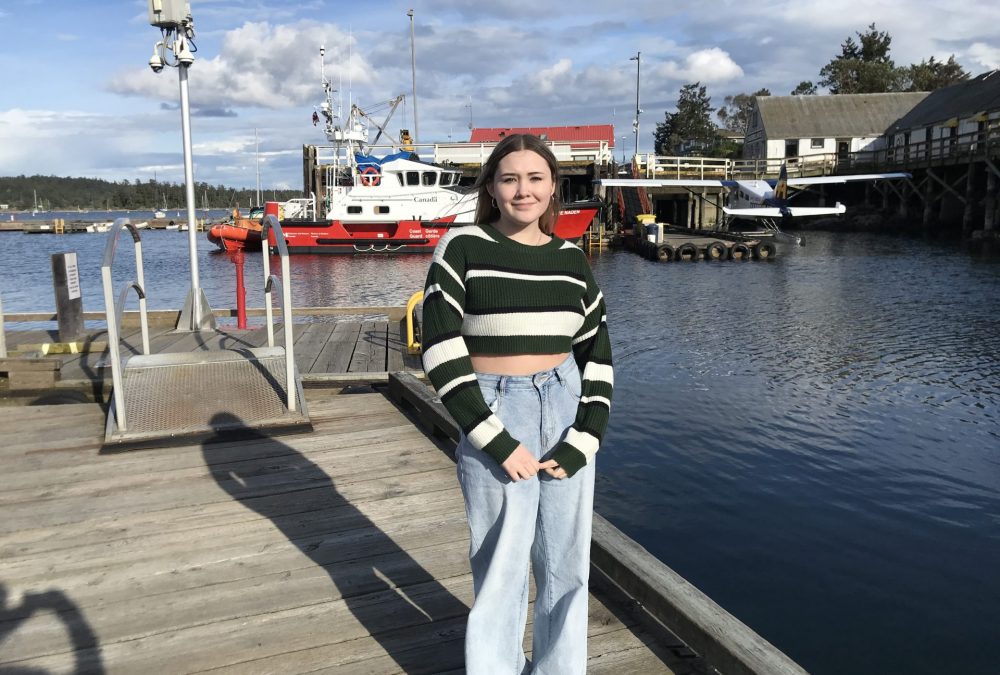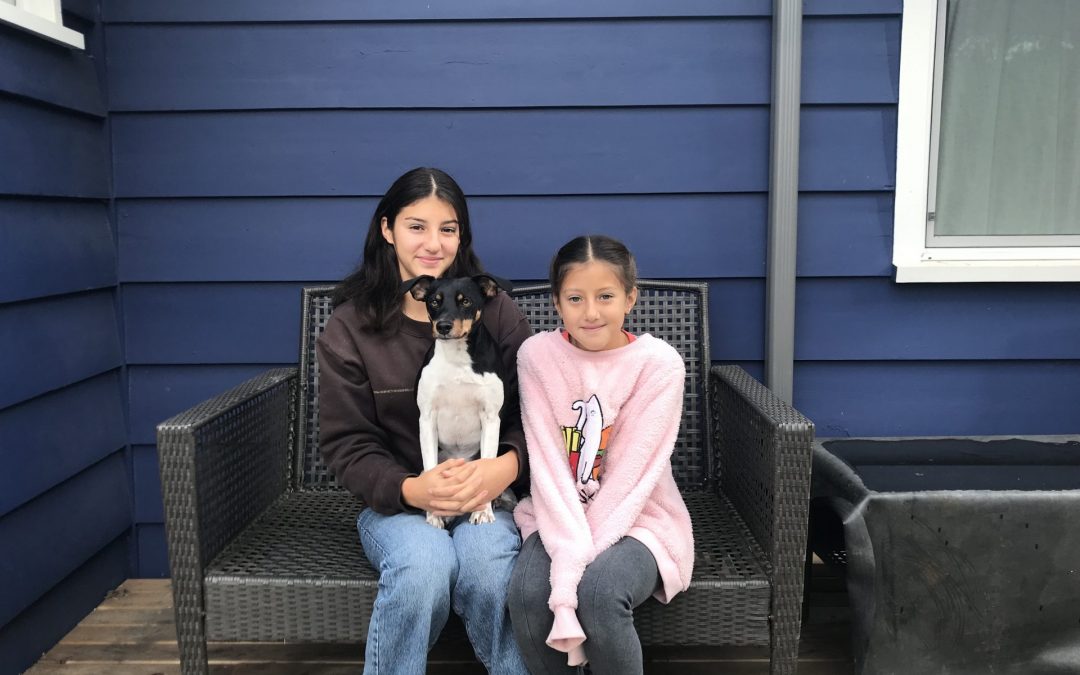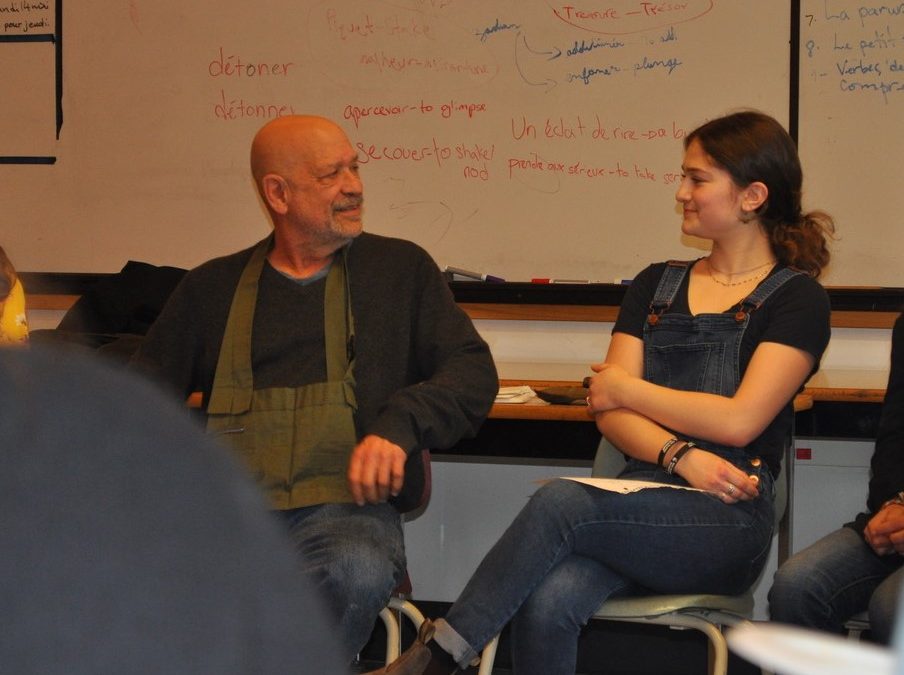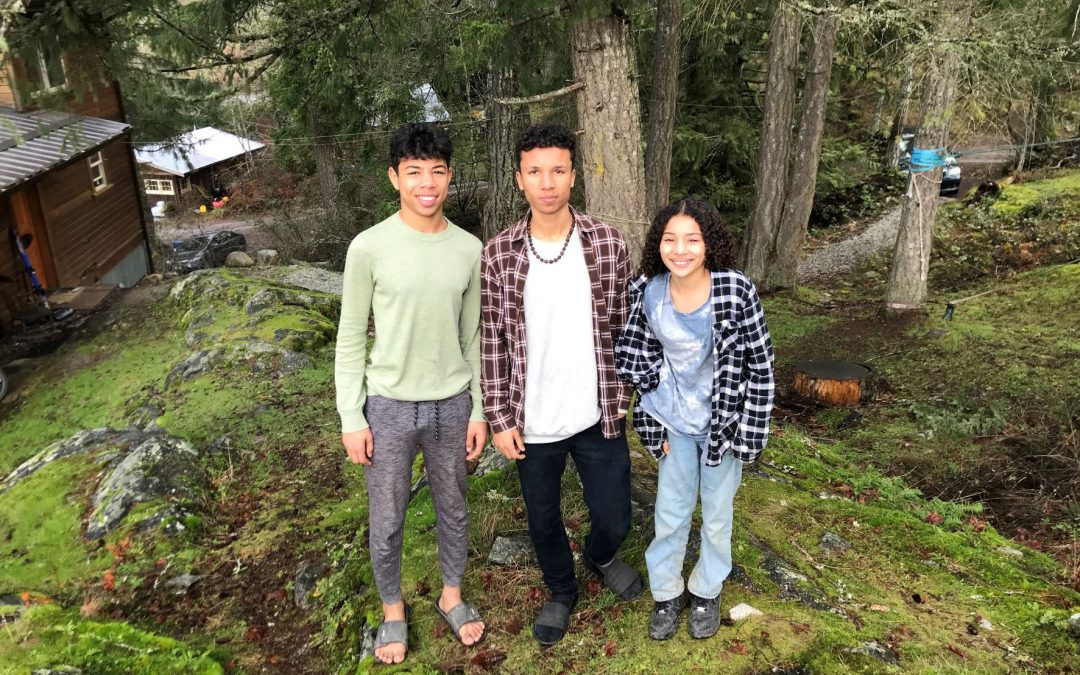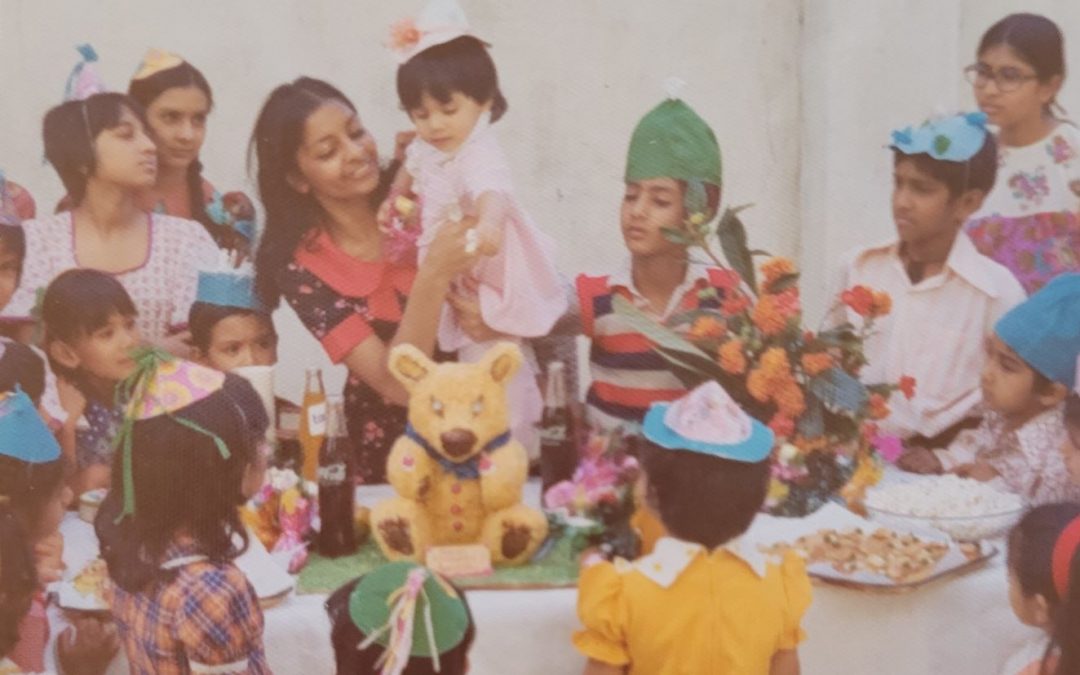Ivanna Darmokhid was thirteen when she moved from Ukraine to Salt Spring Island. The teenage years can be a difficult time to leave your friends and family behind, but Ivanna was excited for this new adventure in her life. She’s grateful that her parents took the leap to start a new life in Canada, especially now that Russia has invaded her home country.
Ivanna (16) was born in Lviv, the largest city in western Ukraine, close to the Polish border. Most of her relatives are from Lviv, although she has family members in other parts of Ukraine as well. “My friends and family in Lviv are relatively safe,” she says. “The Russians come from the north through Belarus, and the east, so it will take longer to get to Lviv, but there were some missile attacks though. I try not to worry too much about my friends and family, but it is hard.”
Ivanna and her dad, Igor, moved to Salt Spring Island in the winter of 2018 to join her mother, Oksana, who arrived a few months earlier. “I was quite excited to move,” says Ivanna, who is in Grade 11 at Gulf Islands Secondary School. “I didn’t travel a lot when I was younger and I’d never been outside Ukraine. Canada was new, it was an adventure. I was definitely sad that I had to leave my friends, but I was also hoping that I could visit them, which I haven’t because of the pandemic. Luckily there is this awesome thing called the internet, which helped me to stay in touch with my friends in Ukraine.”
Ivanna started Grade 8 of Middle School after the winter break. “Thirteen is a difficult age to move to another country. It would definitely have been easier if I had been younger, but everybody is a bit weird at that age, and it would have been a strange stage of life for me anyway,” she says with a smile.
Making new friends
With the already politically unstable situation in Ukraine before Russia invaded the country, her parents wanted to come to Canada to give Ivanna a better future. “They really wanted to move to Canada for a while and when they had the opportunity, they took it. I can’t remember them talking to me about their plans that much. It was quite unexpected when it finally happened, but my first thought was “this could be fun”. I am the type of person that will do well pretty much anywhere. No matter where I am, I will be fine, I can make friends.”
And she did. “I felt welcome in my new class. Everyone was friendly and helpful. Friendships here are a bit different though, compared to Ukraine. Everyone is more open. You can talk about more personal things. The war in Ukraine is not a regular topic between me and my Canadian friends. Which I don’t mind because I don’t always know what to say.”
There was one thing Ivanna worried about before she arrived on Salt Spring Island. “I knew Canada was a bilingual country and I didn’t speak any French. I started to learn French before we moved and it wasn’t going too well, so I was relieved when I noticed that I could speak English here.”
Lost in translation
Her mother introduced her to the English language in kindergarten. “English is mandatory in school. I was taught the basics and knew how to read and write in English, but I didn’t have a lot of experience in speaking the language. For the first couple of months on Salt Spring Island, I felt like an outsider. A bit lost, honestly because of the language barrier, but I caught up pretty quickly.”
She loves living on Salt Spring Island, close to the sea. “Lviv has a population of more than 700.000 people. It was a huge change coming from a big city to a small island, but I like it. I have different points of view now I have lived both in a city and in a rural community. I would have been a completely different person if I had stayed in Ukraine. And because the community is so small and everyone knows each other here, it helped me and my family to make connections more easily.”
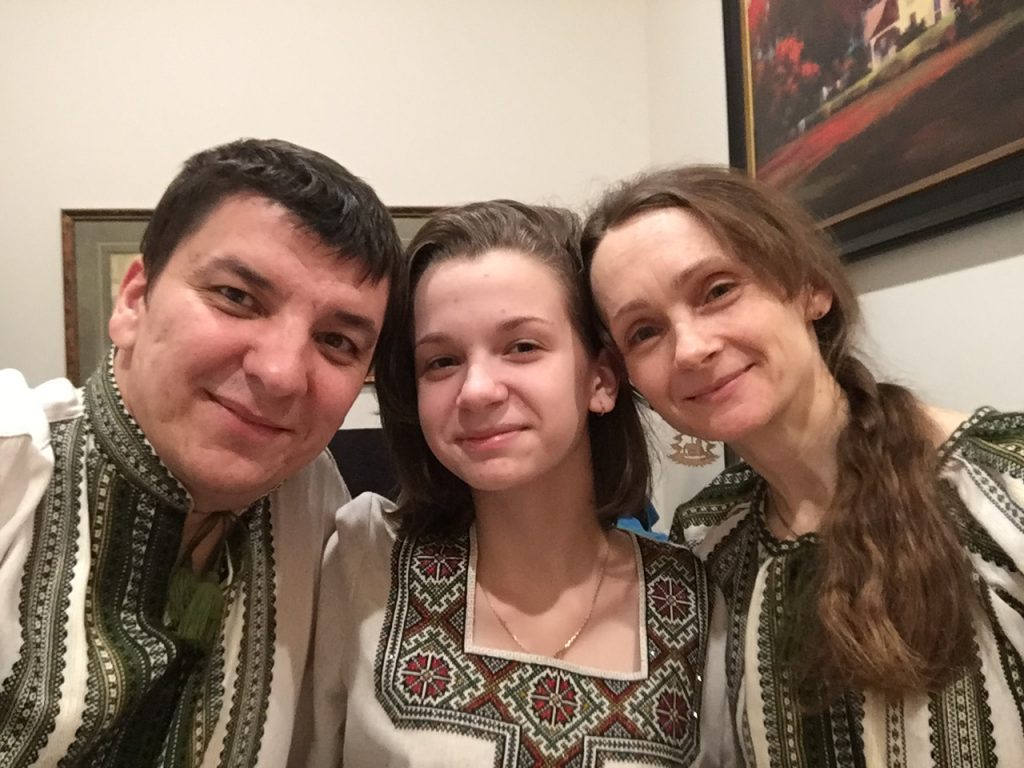
Ivanna and her parents try to keep Ukraine traditions alive now that they are living in Canada. “But it is different,” she says. “A lot of holidays and traditions in Ukraine are connected to the church and celebrated with family. For Christmas, for example, family members cook a Christmas dinner consisting of 12 dishes that symbolize the 12 apostles. And with Easter, you bring your Easter baskets with sausages, eggs, horseradish and sweet bread called paska, to the church where the priest blesses the food with holy water. Now we are just with the three of us, we still celebrate those holidays but just smaller.”
Rich culture
Going to church on Sundays is not a regular thing for her anymore. “Our beliefs are more spiritual now,” she explains. And although she doesn’t miss going to church every week, she does miss her family, the traditions and Ukraine food. “Ukraine culture is so rich and has so many layers. Ivana Kupala is a fun example. It is a holiday that originated during pagan times and marks the summer solstice. I celebrated Ivana Kupala a few times when I was with the girls’scouts. That day you jump over a fire wearing a white dress and the girls make wildflower wreaths that you throw in the river. The boy who catches it a little bit further down the river, you’ve got to hang out with that evening. I have fond memories of that.”
Now she is used to Halloween, Thanksgiving and Canada Day, and after four years in Canada, she feels that Salt Spring is her home. “I have Ukraine roots and I treasure the fact that I am being raised within two cultures. It gives me different perspectives and outlooks on life and it made my life richer. If you ask me where I see my future, I think it is in Canada. We don’t have our permanent residency yet, but I hope we can stay here. Not only because of the war in Ukraine. I have more options in Canada. I feel free, away from the expectations people might have for me in Ukraine.”

